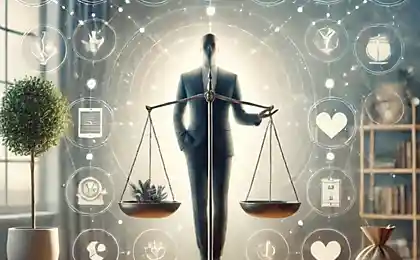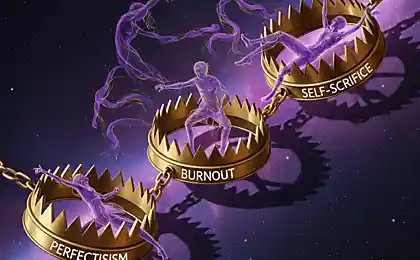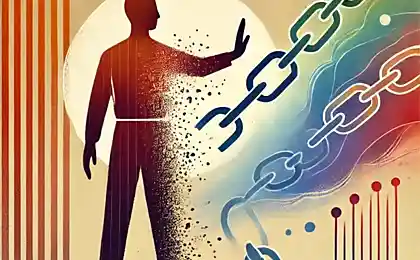201
9 Unobvious Signs: How You Quit Being the Master of Your Life
“I’m Last on My Priority List”: 9 Signs You’re Sacrificing Yourself

According to a 2023 APA study, 68 percent of adults put their needs at or below 3rd on their priority list. Learn how to recognize the hidden signs of “emotional fasting” and restart the self-care mechanism.
1. Chronic "temporary blindness"

The Cambridge University experiment revealed:
- People with less than 30 minutes per day are 83 percent more likely to make decision mistakes.
- Empty reservoir effect: After 2 weeks of ignoring your needs, IQ temporarily drops by 10 points
2. Emotional anesthesia
Diagnostic test:
“When was the last time I was really excited?” If there is no response > 2 weeks - an alarm bell.
3. Deferred life syndrome
“The brain perceives constant self-denial as a threat to survival by activating the ‘energy-saving’ mode,” said Dr. Martha Beck, author of The Way of Integrity.
4. Physical "body letters"
Symptom Link with self-denial Chronic fatigue Violation of ATP production in mitochondria Muscle clamps Constant suppression of true desires
5. Choice paralysis in small things
Columbia University: People who ignore their needs
- Spend 47% more time choosing food in a cafe
- 3 times more likely to return purchased clothes
6. "Silent intuition syndrome"

Data from the Institute of Neurosciences:
- After 6 months of self-denial, the accuracy of intuitive decisions drops from 78% to 34%.
- Failure of the connection between the prefrontal cortex and the islet lobe
7. Chronophagy of relationships
Balance formula:
60/30/10: 60% of the time – your needs, 30% – close, 10% – the rest
8. "Imaginary Superhero Syndrome"
A meta-analysis of 57 studies found:
- People who consider themselves “indispensable” are 72% more likely to suffer panic attacks
- Reduction of gray matter density in the hippocampus by 12% in 2 years
9. Emotional "plagiarism"
Substitution of one’s own desires with others’ expectations → activation of the conflict zone in the anterior cingulate cortex (Nature Neuroscience study).
Important: A 15-year Harvard study found that people who regain balance are 4 times less likely to get sick and 300% more likely to achieve long-term goals. Your needs are not a luxury, but fuel for evolution.
Microdoses of Joy: How 7-Minute Rituals Rewire Your Brain for Happiness
9 Scientific Ways to Stop Feeling Like a Loser























